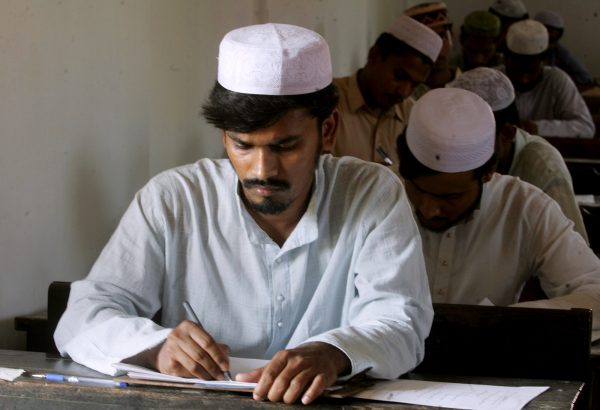West Bengal has not yet seen any major terrorist attacks except for an accidental blast at a terrorist safe-house in 2014. Minister Reddy’s comments were met with fiery criticism from his political opponents in West Bengal. But the claims cannot be brushed away, considering the growing trans-border linkages that terrorist groups maintain in the region. The JMB in particular is believed to have supporters in Bangladesh’s northwest. Both of JMB’s pro-Al Qaeda (AQ) and pro-IS factions appear to be gaining traction in West Bengal.
The ethno-linguistic space of Bengal consists of independent Bangladesh in the east and the Indian state of West Bengal in the west. Bangladesh is a Muslim majority country and West Bengal is a Hindu majority state with Muslim majority districts along its border with Bangladesh. This border is long, porous and poorly managed, resulting in trans-border crime and the cross-border movement of terrorists. In several cases, JMB has used cross-border marriages to find shelter in West Bengal.
Extremist publications have been produced by both IS and AQ in Bengali to mobilise Bengali Muslim youth in efforts to ‘liberate Kashmir’, ‘fight Hindutva’ and ‘establish an Islamic Caliphate in Hind’. Such exhortations have been linked to the ‘Ghazwatul Hind’ prophetic narrative which talks of a final battle for the Indian subcontinent.
The prompt release of AQ chief Ayman al-Zawahiri’s latest video message Don’t Forget Kashmir in Bengali is a case in point. As the crisis in Kashmir simmers, India may face an escalated threat of radicalisation and terrorist recruitment.
West Bengal’s state government has not been able to check the spread of radical and extremist ideologies. The incumbent Trinamul Congress (TMC) party has been accused by New Delhi of being soft on extremists because it looks at the Muslim community as a vote bank. New Delhi argues that TMC often turns a blind eye to radicalism committed under the cover of religious activities.
Critics have accused the ruling TMC of being soft on terror since October 2014, when an explosion occurred in a house in the Khagragarh locality of Burdwan, West Bengal. Two suspected Indian terrorists were killed and a third injured. The police seized 55 improvised explosive devices, chemicals and equipment. The building was owned by Nurul Hasan Chowdhury, a TMC leader. The ground floor of the building had been used as a TMC party office and an election office in the past.
However, the state assembly elections in West Bengal are due to be held in 2020. The perception of TMC as soft on Islamist elements may be used by the ruling national Bharatiya Janata Party as a political tool to discredit.
But there is limited access to mainstream education in West Bengal’s Muslim majority districts. This void was filled by madrassas that lacked accountability for and commitment to quality education. TMC has been accused of doing nothing to create access to mainstream education for Muslims. A large segment of the community therefore remains dependent on the madrassas, many of which are outside the oversight of the state.
Islamist militancy in eastern India remains relatively underestimated, especially since JMB launched its India chapter in 2018. JMB originated from the sub-group of a local Salafi movement known as the Ahle Hadis. They have followers in both Bangladesh and West Bengal. In 2018, JMB opened a new wing in India — Jama’atul Mujahideen India (JMI).
The group proclaimed its belief in qital, armed struggle to ‘uproot polytheism and establish Islam’. It also claimed that the Indian subcontinent is a future battlefield to establish the Caliphate as per the Ghazwatul Hind prophecy. The Indian chapter could be used to recruit from the Muslim community in West Bengal and to send them to various parts of India for fundraising and operations.
There are several reasons for JMB’s expansion in West Bengal. In 2006, Bangladesh launched a major campaign against JMB as a response to the group’s country-wide simultaneous bomb attacks in 2005. Some JMB militants crossed the border and took shelter in West Bengal. Through operating across the border, JMB kept in close contact with fellow members on the Bangladeshi side.
Indian security agencies have established JMB links with bomb blasts in Burdwan, West Bengal in October 2014 and Bodh Gaya, Bihar in January 2018. Bodh Gaya and other iconic Buddhist centres in India were targets intended to express solidarity with Rohingya Muslims. Investigations by Indian authorities have revealed JMB plans to make permanent bases along the India–Bangladesh border and to spread its network in South India.
The spread of terror groups underscores a need for the Indian and the West Bengal state governments to create better educational opportunities for youth and to modernise the madrassa education system. Politicising the issue of radicalisation might further polarise the communities within which extremists are born — both Muslims and Hindus alike.
Iftekharul Bashar is Associate Research Fellow at the International Centre for Political Violence and Terrorism Research, Nanyang Technological University (NTU), Singapore.

